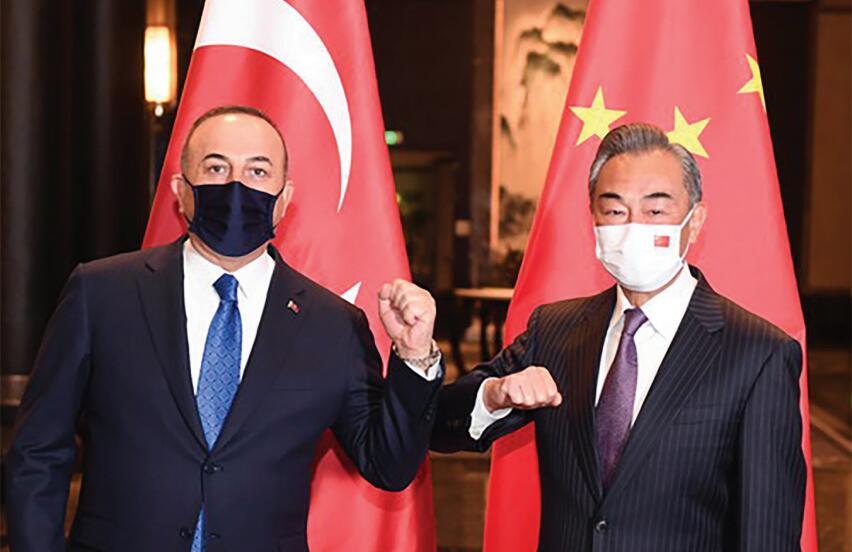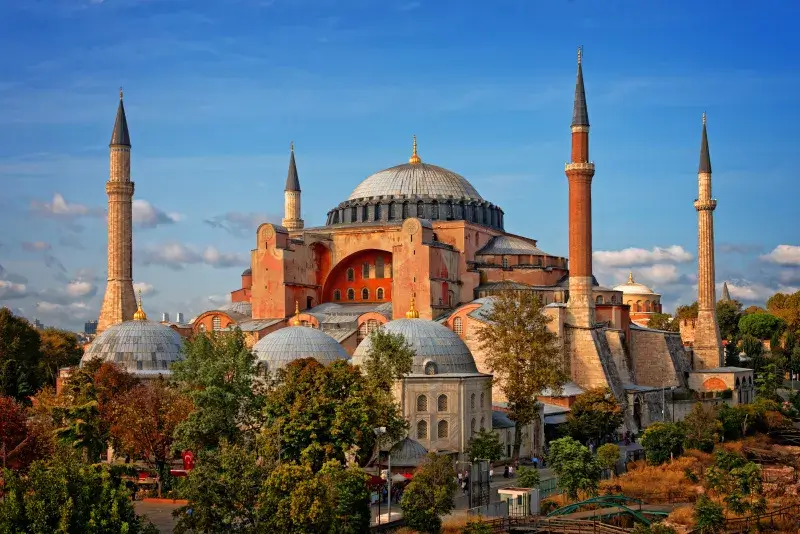
World conjecture has been changing for thousands of years. Within humankind's existence, it is going be follow the same circle in the future. People always tend to explain developments and changes in their social life. This brings theories to put ideas and question marks under a certain structure to explain orderly. Along with the social and economic development of humankind, there were advanced initiatives and new theories occurring around the world. The world has become more global, connected, and developed ever than before. Unfortunately, the nature of humankind does not change; ambitions and sinister intentions, therefore the sense of insecurity played role in policies as it used to be.
After the Cold War, Constructivism has been introduced and highly welcomed around the world. It has contributed to global society and development. But recent development around the world has raised question marks about Constructivism again. Covid-19 has changed the global conjecture in many senses. Connectivity of the world decreased dramatically. Due to climate change, states become more aware of their “own” natural resources. Because of the new variant of diseases and wars, the global economy tends to focus on the national/domestic economy and global logistic supply becomes less functional. Therefore, Constructivism has been questioned by scholars and politicians. Is it the end of Constructivism?
Constructivism History
Constructivism’s history backed the end of the Cold War. After Cold War, new developments showed that Constructivism is alternative to Realism and Liberalism. Constructivists argue that countries may have multiple identities that occur with new conjuncture. Those identities constitute interests and actions. In Constructivist theory, countries set their policies based on their unique conditions. In this point, countries changing governance regimes, and revolutions can be playing factors.[2] Interactions and perceptions construct builds Constructivism.
Constructivism may summarize in 3 steps as follow; 1) Constructivism focus on difference across context rather than a single point. It challenges nature of ‘reality’, analyze color tones between black and white. 2) Constructivism points social dimensions of international relations. It covers dimensions like history, culture, norms, rules, and language. 3) Constructivists takes responsibility, argue that international politics is man-made.[3]
Nicholas Greenwood Onuf is known as one of the founders of constructivism in Academia. According to him, international conjuncture is simply that made by humans that he named his famous book ‘World of Our Making’. Ambitions, interest, relationships, structures and many other variables create the world that we are living in.[4] Another important name of constructivism, Alexander Wendt argues that "Anarchy is what states make of it.” He believes that the international system is dynamic and changes based on different levels of interactions and variables, which means it is socially constructed. In short, interactions shape international actors’ identities and national interests. Based on the result of the interaction, countries characterized themselves by self-help; countries either may change their character or not. It is not specifically identified by the theory, it remains an option.[5]
Realists believe that anarchist environmental lead international actors to have security dilemmas and let them focus on security. Liberals argue that international actors have to focus on shared problems rather than competing with each other. In this point, Constructivism criticizes those that by ending up with failure during Cold War and argues that countries as rational actors with their interests should always act in a predictable way. In this regard, common interest leads countries to have predictable relations. Constructivism sees the world as a product of the social construction of reality, which means that relations are based on human action. Variables like anarchy security dilemmas and all those ‘facts’ depend on human action. As Alexander Wendt once said, Anarchy is what states make of it. It means that human creates their own reality and perception. Moreover, it argues that it is changeable by changing our perception and trying to find real objectiveness. Because Constructivism argues that nations may live through the ‘life cycle of norms’ to have the wrong perception. Those perceptions might affect countries' characteristics both domestically and inter internationally. Despite Realism and Liberalism, Constructivism believes that stable relations between counties are based on their identity. Realism and Liberalism based on human being nature put all humanity and the countries in the same basket. It is a matter of sharing the same or similar values. Similar values help countries to build bridges while different identities put distance.[6]
Conclusion
In short, Constructivism was a reaction to a naked fact from a certain opinion. Current conjecture shows that it is not functional as realism does. Therefore, the Constructivist is expected to analyze current conjecture and develop Constructivism to another level. It is essential to remember the global environment that how Constructivism has introduced itself to International Relations. Therefore, it is assumed that Constructivist will introduce more inclusive and holistic approaches in the near future.
- [1] Ahmet Faruk ISIK is a Ph.D. candidate in the Department of Comparative Politics and Area Studies at Shanghai International Studies University. He is a researcher at the Italy Torino World Affairs Institute and a research assistant at the Shanghai Academy of Global Governance and Area Studies (SAGGAS). ISIK is currently working at the Foreign Economic Relations Board (DEIK) as a coordinator for the Turkey/Asia-Pacific Business Council in Istanbul.
- [2]STEPHEN MCGLINCHEY, ROSIE WALTERS & CHRISTIAN SCHEINPFLUG, International Relations, SARINA THEYS, Constructivism Theory,Pp37.
- [3] Tim Dunne, Milja Kurki, Steve Smith - International Relations Theories_ Discipline and Diversity-Oxford University Press (2013) K. M. FIERKE, pp.189.
- [4] Nicholas G. Onuf, World of Our Making (Columbia: University of South California Press, 1989).
- [5] Wendt, Alexander. “Anarchy Is What States Make of It: The Social Construction of Power Politics.” International Organization, vol. 46, no. 2, [MIT Press, University of Wisconsin Press, Cambridge University Press, International Organization Foundation], 1992, pp. 391–425.
- [6] M. Cox, R. Campanaro, Introduction to international relations, University of London,2016, Pp130.






![Olympic village [Photo provided to Beijing Daily]](http://sisu.cdn.1fenda.com/sites/default/files/2022-10/Olympic%20village.jpg)


